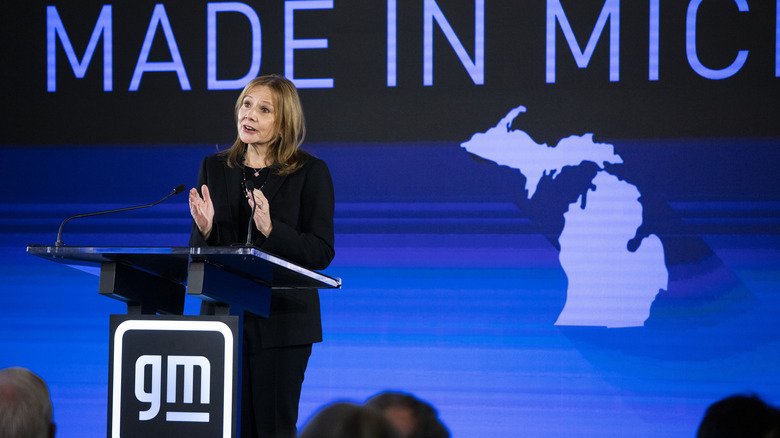
Every day, it seems, America's technology patriots wake up to an alarming headline about how China is leaping ahead with something enviably futuristic. For a few years now, there's been a surge in EVs. Now, the news is that the Middle Kingdom is preparing to mass-produce solid-state batteries by the end of the decade, with "semi-solid state" batteries arriving sooner.
Per Automotive News, quoting Shmuel De-Leon, CEO of Israeli battery consulting firm De-Leon Energy:
"The Chinese not only have the technology, but they have the cost [advantage] and the production capacity. They are much beyond what we have in America," De-Leon said. "We should understand what is happening in China, and we should not underestimate their technology, know-how, skills and time to market. They are very strong competitors."
Well, that's going to make some folks unhappy. But it gets worse. In the same article, Automotive News reported that "Kurt Kelty, General Motors' vice president of battery, propulsion and sustainability, said GM has no plans to offer solid state battery packs in the near future." Ford is reportedly also uninterested in the technology for any impending applications.
 Thx4Stock team/Shutterstock
Thx4Stock team/Shutterstock
Let's not delve too deeply into the overall market situation in China's auto industry, where there are probably too many carmakers adding too much manufacturing capacity, putting pressure on the country to increase exports at a time when a global trade war has been developing. Looking at just the long-term play, which is electrification, we can see that pushing the envelope on solid-state makes sense. Semi-solid state is a logical, evolutionary step, as it allows this interim technology to begin the transition from existing battery chemistries.
There's obviously a lot less urgency to chase solid-state in the U.S. The country is basically retreating from an earlier enthusiasm for EV leadership, and that retreat is a combination of shifting politics and the tepid market response that automakers have seen to their first major EV efforts. In the abstract, it would perhaps be a good idea to contest the Chinese for solid-state dominance. But on the other hand, lacking state backing, it's challenging to pursue a difficult and expensive technology that might not ever pay off. (That said, Toyota might bring the tech to consumers before the end of the 2020s, and other big names in Big Auto are undertaking ambitious solid-state programs.)
 Bill Pugliano/Getty Images
Bill Pugliano/Getty Images
GM's Kelty said that the company isn't ignoring solid-state, and a Ford executive called solid-state a "possible future technology." So nobody is ruling anything out, at least not overtly. But lurking beneath the surface is the post-financial-crisis mojo of the Detroit auto industry: costs matter. Simply put, GM and Ford intend to be profitable, even if that means leaving some blue-sky stuff to foreign competitors.
From my perspective, giving up solid-state to the Chinese is only a problem if a decades-long legacy of free-ish trade completely collapses and it becomes difficult to buy batteries from Asian suppliers. It's also worth considering that if solid-state eventually supplants to current chemistries, and if EV sales in the U.S. surge, then factories manufacturing solid-state will get built here, to simplify and localize the supply chain. There's also the relevant question of how quickly the industry wants to abandon one chemistry for another. Consumers might start to balk at EVs that become rapidly obsolete because automakers are in a constant race to commercialize the latest battery tech.
But for now, GM and Ford appear to be having a hard time caring that they might get left behind, yet again, by the Chinese.














